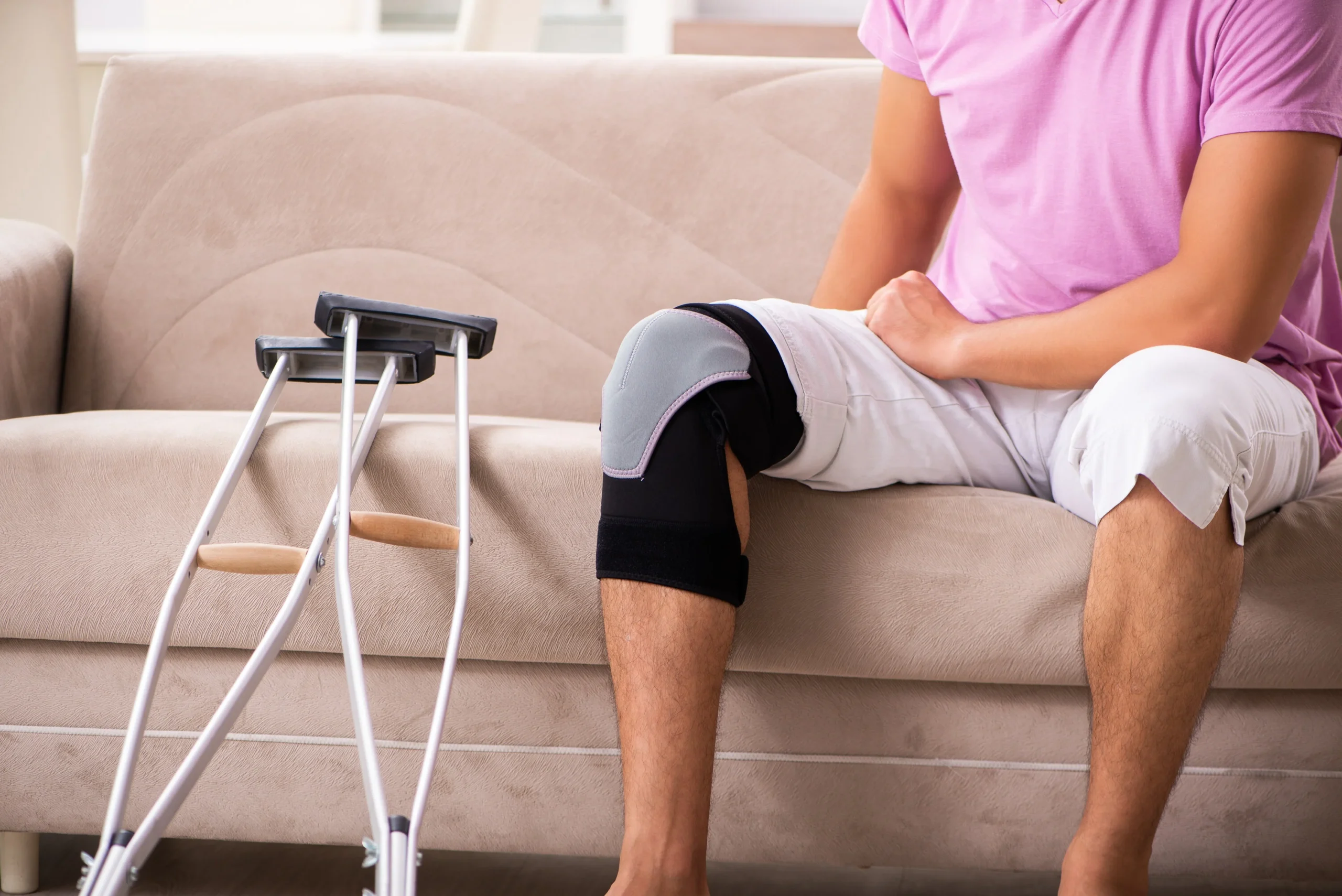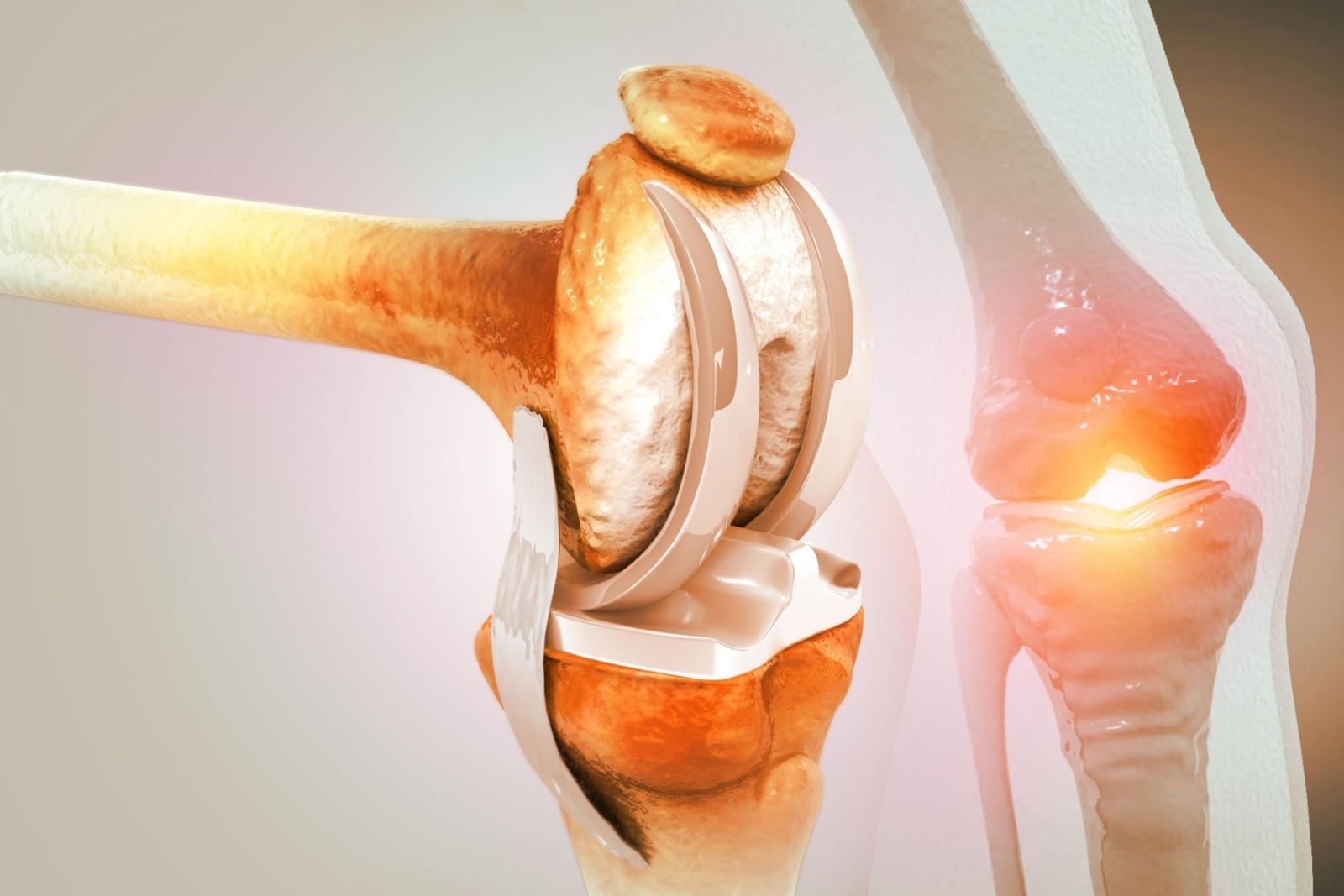
Living with constant knee pain can be physically draining and emotionally exhausting. Whether you're struggling to walk, climb stairs, or even get out of bed, chronic knee problems can take a serious toll on your quality of life. If medications and physiotherapy haven’t helped, it might be time to consider total knee replacement.
This blog is your complete, easy-to-understand guide to the procedure — from what it involves to how long recovery takes, and what benefits you can expect. Whether you're considering surgery yourself or helping a loved one make a decision, this guide breaks everything down in plain language.
As defined by the AAOS Clinical Practice Guideline (2021), total knee replacement (TKR), or total knee arthroplasty, is a surgical procedure where the damaged parts of the knee joint are removed and replaced with artificial implants.The UK National Joint Registry’s 2022 report, modern implants ease pain and correct alignment, and fewer than 5% need another operation within ten years.
The replacement joint usually consists of metal components for the thigh bone and shin bone, with a plastic spacer in between to mimic cartilage and help the joint glide smoothly.
The goal of the surgery is simple: relieve pain, restore mobility, and help you get back to doing the things you enjoy — walking, driving, exercising, or even just sleeping through the night without discomfort.
There are many reasons why someone may need knee replacement surgery. Hunter et al. (2019) describe osteoarthritis as the most common cause, in which cartilage loss leads to direct bone-on-bone contact, resulting in pain and stiffness. This creates pain, swelling, and stiffness.
Other causes include:
Surgery isn’t the first step — but it may become necessary when other treatments no longer help. Common signs that you might be a candidate include:
If you're experiencing several of these symptoms, consult with a Knee Replacement Surgeon in Kolkata to assess your condition through imaging (like X-rays or MRIs) and physical exams.
Being prepared helps reduce anxiety and supports better recovery. Here's how patients usually prepare:
Before surgery, your doctor will evaluate your heart, lungs, and overall health to ensure you can safely undergo anesthesia and recover well.
You'll likely undergo blood work, urine tests, ECG, chest X-rays, and detailed knee imaging.
Create a recovery-friendly home setup:
Surgery is both a physical and mental journey. Talk to your doctor, ask questions, and understand what to expect.
Kim et al. report says that TKR is typically performed under spinal or general anesthesia and takes about 1.5 to 2 hours.. Here’s how it unfolds:
The artificial joint is designed to mimic the movement of a natural knee, with durability to last 15–20 years.
A 2021 ERAS study in The Journal of Arthroplasty found that most patients stay in the hospital for just 2–3 days after TKR. Nurses and doctors monitor your vitals, pain levels, and start gentle leg movements.
Mild to moderate pain is normal and manageable through medications. Ice packs and leg elevation reduce swelling.
You’ll start moving your leg the same day or next. A physical therapist will help you with basic exercises to get the blood flowing and prevent stiffness.
Everyone heals at their own pace, but here’s a typical recovery schedule:
| Timeframe | Recovery Milestone |
| Week 1–2 | Pain and swelling managed; begin walking with support |
| Week 3–6 | Improved mobility, less stiffness, independence growing |
| Month 2–3 | Walking without a cane or walker; return to light tasks |
| Month 3–6 | Resume driving, gardening, office work |
| 6–12 Months | Full recovery; return to light sports or fitness classes |
Consistency in exercises and regular follow-ups with your Knee Replacement Surgeon in Kolkata are key to a smooth recovery.
This is the number one benefit. Most patients report 90–95% reduction in knee pain after full recovery.
You’ll walk better, move faster, and navigate stairs without wincing in pain.
When pain no longer holds you back, you can return to activities you love — traveling, dancing, or playing with your grandchildren.
Modern implants, especially when fitted by experienced surgeons, often last 15–20 years or more.
You’ll feel more independent and secure — no more fear of falling or collapsing knees.
While the success rate is high, like any surgery, TKR has potential risks:
These are minimized by working with a highly qualified Knee Replacement Surgeon in Kolkata and following post-operative care diligently.
Here’s what to look for when selecting your surgeon:
Dr. Debasis Chakravarty(MBBS, M.S. (Orth), MRCS (Edin), FRCS (Tr& Orth), for example, is known for precision in robotic-assisted surgery and personalized care plans tailored for each patient.
Total knee replacement is a life-changing procedure for people suffering from chronic knee pain. From reducing discomfort to regaining mobility, the benefits are undeniable. But success depends heavily on preparation, aftercare, and most importantly — choosing the right expert.
If you're looking for an experienced and trusted Knee Replacement Surgeon in Kolkata, make sure to do your research and choose someone who blends skill with compassion. Whether it’s your first consultation or you’re ready to move forward, the journey to a pain-free life starts now.
Answer:
Total knee replacement is designed to be a long-term solution. Most modern implants last 15–20 years or more, especially if the surgery is done by an experienced surgeon and you follow a good recovery plan. However, in rare cases, a revision surgery may be needed later in life.
Answer:
Most patients start walking with support (walker or cane) within 1–2 days after surgery. By 6–8 weeks, many can walk without assistance. Full recovery, where you can walk long distances or climb stairs comfortably, usually takes 3–6 months, depending on your health and physiotherapy progress.
Answer:
You may feel some pain or discomfort immediately after surgery, but it’s well managed with medication. The pain is typically much less than the pain you felt before the operation. Most patients say it’s worth it because the chronic pain goes away permanently after recovery.
Answer:
Yes, once recovery is complete. Most patients can start climbing stairs within 6–8 weeks and resume driving in about 6 weeks, as long as they can bend the knee comfortably and react quickly. Your surgeon will guide you on when it’s safe based on your progress.
Answer:
There are many skilled orthopaedic surgeons in Kolkata, but patients often look for doctors with specialized experience in joint replacement, robotic techniques, and high patient satisfaction rates. Dr. Debasis Chakravarty(MBBS, M.S. (Orth), MRCS (Edin), FRCS (Tr& Orth) is widely recognized for his expertise in total and partial knee replacements using advanced technologies, offering patients fast recovery and long-lasting results.

Getting a new hip or...

Sleep plays a vital role...

Knee replacement surgery is supposed...

Living with constant knee pain...
If you're considering knee replacement...